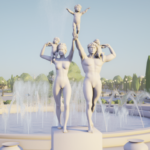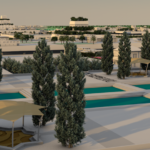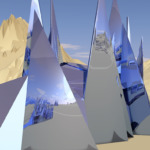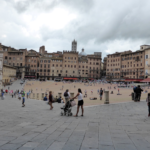
Community
and place
MOSCOW, 2020
Community needs place; without places, we have various agglomerations of humans, but no community. In the framework of an exhibition at the Shchusev Museum of Architecture in Moscow (January to May 2020 and after ending the Covid 19 lockdown, to end of August), the general topic was about a European Architecture for the Future. It was the most visited exhibition since the museum’s opening in the 1930ies. Inside this domain, we decided to focus on the relation between community and place.

The idea of humans as communal beings living in communities is central to our inherited understanding of what a human being is at all, as an essential part of a conditio humana. We wanted to express this idea by presenting different selected worlds, standing for such an idea, coming out of a large tapestry (an oval measuring 16 meters); that tapestry symbolizes the flow of history out of which different communities emerged. It embodies a piece of art in itself, the background in the distant out of which communities and related utopian trials emerged again and again.
The tapestry.
Community and Place – an introduction
Communities need place, and not just space. Place, the Aristotelian topos, is space as a place of concrete belongings, of immediate experience and affectivity and hence, of community. Since community, as opposed to mere agglomerations of people, needs personal relationships. The counterpart to the topos, the concrete place of concrete belongings, is the Roman notion of spatium, the neutral, abstract space of architecture. It is not the concrete space where life takes place, but a space of measurements, neutral geometry; it is an essentially homogenous, metric space opposed to the Topos, the space of community.
Read moreThe exhibition
Out of our tapestry, developed by U. Gehmann and Dominik Rinnhofer, different worlds emerge, called up by the visitor while walking along the tapestry. Called up, at different indicated places in the tapestry, worlds of their own will unfold, on the respective terraces – the tapestry, in its sequence from left to right a story in its own, starts to provide further stories hidden inside it. There are additional stories inside the main story which have to be awakened by the spectator.
Read moreThe worlds
Discover the worlds imagined and created for the project. Of course, there could be many of such stories possible. We decided to take three ones, each of a different tonality and drive.
Alternative scenarios
In the end, some alternative scenarios for future possible developments shall be portrayed. Of course, there can be many alternative futures, subject of diverse dystopias and eutopias alike. And if we take the latter, we know that most probably (if judged from the course of history so far), that such utopian hopes will never be fulfilled.
Read more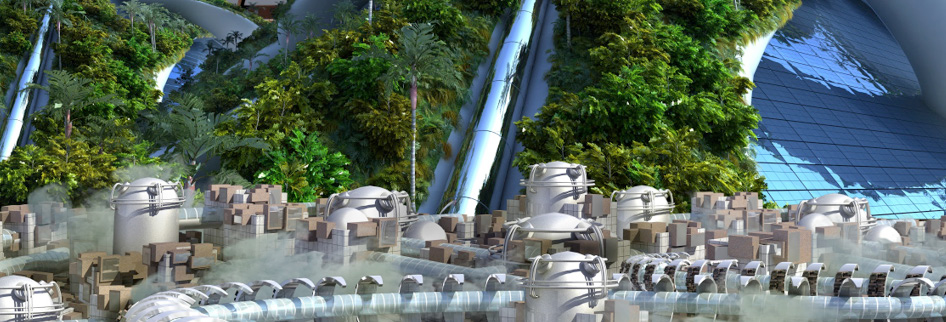
The team:
Ulrich Gehmann, Dominik Rinnhofer, Mauro Ferrario, Stefano Guarinoni, Yulia Leonova, Alexander Kadin, Srishti Khanna, Federico Delrosso, Maya Zuckerman, We Were UV.

